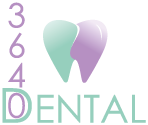Can You Go to the ER for a Toothache? What You Need to Know
Sudden tooth pain can make simple tasks seem impossible. A toothache might range from mild discomfort to intense agony, making it difficult to know what step to take next. Is the emergency room the answer, or is it better to wait and see your dentist? Knowing the difference can save valuable time and discomfort.
When to Go to the ER for a Toothache
Most toothaches don’t require an emergency room visit. However, certain circumstances make a trip to the ER the safest choice. Pay close attention to symptoms that signal something serious.
Here’s when an ER visit makes sense:
- Sudden, severe swelling in the face, jaw, or neck
- Difficulty breathing or swallowing
- Significant bleeding from the gums or mouth that won’t stop
- High fever accompanied by tooth pain
- Severe facial trauma or accidents affecting teeth and jaws
- Intense, unbearable pain when your dentist isn’t reachable
Facial swelling, particularly when accompanied by fever, suggests infection. Infections can spread quickly, causing serious health issues. These symptoms require immediate medical attention from ER doctors to ensure the infection doesn’t become dangerous.
If tooth pain is mild or moderate, the ER won’t provide a long-term solution.
What the ER Can and Cannot Do for a Toothache
Emergency rooms are great for certain conditions, but dental problems usually aren’t among them. Knowing the limits and capabilities of the ER helps set realistic expectations.
Here’s what the ER can do:
- Prescribed pain medications for temporary relief
- Provide antibiotics for infections and swelling.
- Stop heavy bleeding
- Evaluate severe trauma or injury affecting oral health.
However, here’s what ER doctors cannot do:
- Perform dental procedures like fillings or root canals
- Extract damaged or decayed teeth.
- Fit or repair dental crowns in Atlanta.
- Treat long-term dental problems definitive.ly
Emergency rooms treat immediate symptoms but can’t fix the underlying dental cause. For that, it’s necessary to see a qualified dental professional, such as a reliable dentist in Atlanta.
Alternatives to the ER for Tooth Pain
Emergency rooms aren’t the best solution for tooth pain unless it’s severe. Thankfully, several better options exist to address the issue directly and effectively.
Consider these alternatives instead of the ER:
- Find a reliable dentist near you who offers emergency or same-day appointments.
- Visit a specialized emergency dental office in Atlanta for after-hours or weekend appointments.
- Check for local urgent dental care clinics designed specifically for immediate treatment.
- Use online tele-dentistry services for professional dental advice and quick prescriptions.
In the meantime, at-home treatments can ease your symptoms temporarily:
- Wash the mouth gently with warm salt water to reduce swelling and soothe gums.
- Apply an ice pack or cold compress externally to ease pain and reduce swelling.
- Take over-the-counter pain medication to relieve discomfort safely.
- Avoid hard or extremely hot foods and drinks to minimize irritation.
Though helpful, these remedies are temporary. Scheduling professional dental care quickly remains the best approach for lasting relief.
How to Prevent Dental Emergencies
Preventing toothaches and dental emergencies takes proactive care. Regular dental hygiene and checkups make a big difference in avoiding unexpected pain.
Follow these simple preventive tips:
- Brush your teeth thoroughly at least twice a day and floss regularly.
- Attend routine dental checkups every six months for cleanings and exams.
- Avoid chewing on ice, hard candy, pencils, or other hard objects.
- Keep on a protective mouthguard when playing sports or sleeping if teeth grinding occurs.
- Treat minor dental issues promptly before they become serious emergencies.
Preventive care not only keeps teeth healthy but also saves considerable pain, stress, and money over time.
Even the most cautious people experience accidents occasionally. Knowing a trusted dental professional in emergencies helps significantly. For instance, keeping contact information for a respected dentist readily accessible can provide peace of mind when trouble occurs.
Quick Tips: Dental Emergency Dos and Don’ts
To make this clear and actionable, here are quick guidelines for handling toothache situations:
Do:
- Immediately contact a dental office or emergency dental service.
- Rinse gently and keep the affected area clean.
- Apply cold compresses if there’s swelling.
- Use appropriate pain relievers to ease discomfort temporarily.
Don’t:
- Delay treatment, hoping the pain goes away on its own.
- Attempt at-home extraction or other risky treatments.
- Ignore symptoms like fever, difficulty breathing, or facial swelling.
Understanding these simple guidelines can help you manage dental emergencies more effectively and safely.
Final Thoughts
Toothaches can feel alarming, but knowing the right steps prevents panic. Severe cases might need immediate medical care, but most toothaches are best treated by experienced dentists like Dr. Walter Grayson. For prompt and effective relief, contact 3640 Dental to address the root cause, ensuring quick comfort and protecting your dental health in the best possible way.

